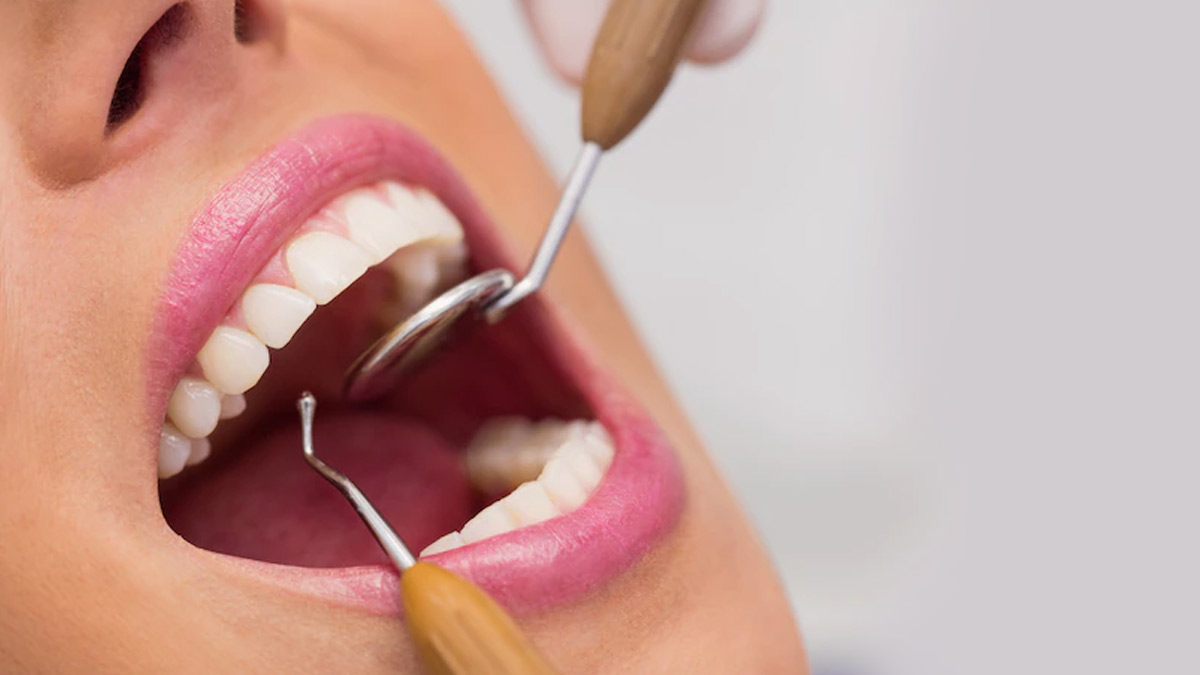
Oral diseases, though preventable, affect people throughout their life, often bringing pain, discomfort, disfigurement, and even death. A recent Oral Health Status Report by the World Health Organisation (WHO) states that almost half of the world's population is suffering from poor oral health. Oral diseases are caused by a range of risk factors such as sugar consumption, tobacco use, alcohol use, and poor hygiene. Your poor oral health can harm you in many ways, including complicating diabetes management and the risk of heart disease.
Table of Content:-
Relationship Between Oral Health and Heart Health
Harvard Health Publishing writes that people suffering from gum diseases are at least two times the risk of having heart issues, such as stroke, heart attacks, and other cardiovascular problems. It further states that the link may not be direct, as people who do not have gum disease also suffer from these heart issues.

Poor oral health is linked to an increase in the transmission of bacterial infection in the bloodstream. This can affect the valves of your heart. These germs can attach to any damaged tissue when they get to the heart and start inflaming it. According to the Mayo Clinic, this can lead to diseases like endocarditis, an infection of the heart's inner lining. According to the American Heart Association, inflammation brought on by oral bacteria has also been linked to other cardiovascular disorders like atherosclerosis (clogged arteries) and stroke.
Also Read: Before or After Breakfast: The Right Time To Brush Your Teeth
Who are at Risk?
The risk of heart disease brought on by poor dental health is highest in patients with chronic gum disorders like gingivitis or advanced periodontal disease, especially if it goes misdiagnosed and untreated. The bacteria linked to gum infections can enter the bloodstream through the mouth and bind to blood vessels, increasing your risk of cardiovascular disease. However, poor oral hygiene and a buildup of plaque put you at risk for gum disease even if there isn't any obvious gum inflammation. Additionally, the bacteria can enter your bloodstream and raise your C-reactive protein. C-reactive protein is a measure of vascular inflammation, increasing the risk of heart disease and stroke.
Symptoms and Warnings Signs
Watch out for these symptoms of gum diseases:
- Your gums are painful to the touch and become red and swollen.
- When you eat, brush, or floss, your gums bleed.
- Pus develops around your gums and teeth.
- The sensation of gum detachment from your teeth.
- You sense a sour taste in your mouth or often you have a bad mouth smell.
- If your teeth become loose from their site.

Also Read: Poor Oral Health May Complicate Your Diabetes Management, Here's What You Can Do
Preventive Measures
The best approach to guard against the onset of gum disease is to practise good oral hygiene and get routine dental checkups. It is advisable to use a soft-bristled toothbrush that is comfortable. Clean your teeth twice a day. Have a teeth-healthy diet. Additionally, you should visit your dentist for routine professional cleanings and floss every day.
Conclusion
By taking charge of your oral health, you can prevent the development of a link between your health and your heart and maintain a healthy, attractive smile for the duration of your life.
Image Credit: freepik
Also watch this video
How we keep this article up to date:
We work with experts and keep a close eye on the latest in health and wellness. Whenever there is a new research or helpful information, we update our articles with accurate and useful advice.
Current Version